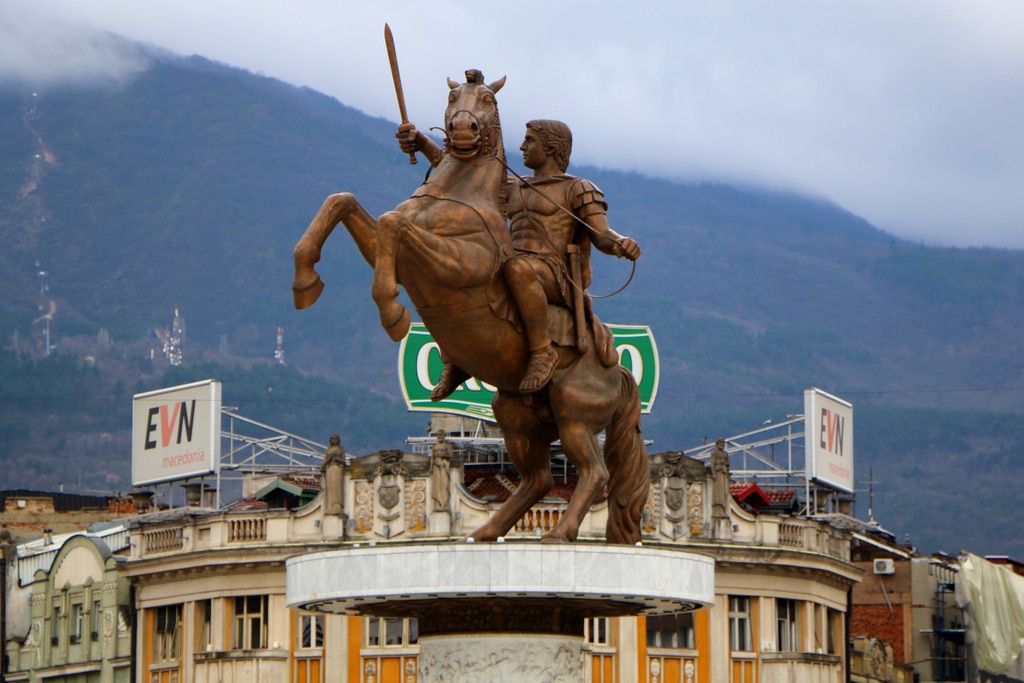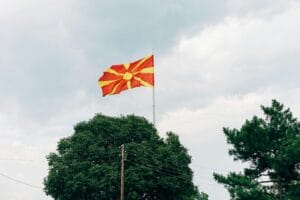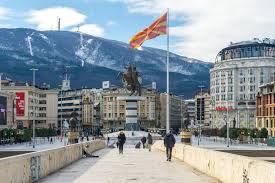After three years of impasse, a new round of UN-backed talks has recently started between Greece and its northern neighbouring country on the long-standing name dispute over Macedonia, which is claimed by both the Balkan country and Greece’s northern province, which bears the same name. Macedonia’s Prime Minister Zoran Zaev said he believes the decades-old dispute may be resolved by the end of the first semester of 2018. Greek Foreign Minister Nikos Kotzias was also optimistic regarding a rapid solution to the name dispute. ‘’I think 2018 will be the year when foreign policy issues that have been stuck in the mud for decades will be resolved.’’
Since the collapse of Yugoslavia in 1991 and the establishment of an independent state, Greece has been challenging the use of the name ‘Macedonia’ by its northern neighbour, as it allegedly implies territorial ambitions on part of that country. In addition, Greece has been arguing that ‘Macedonia’ is an exclusive term for its northern province. By claiming the name Macedonia, Greece’s neighbouring country is appropriating a part of Greece’s ancient history, Athens says. Because Macedonia had always been disregarding Greece’s objections, the country blocked Macedonia’s bid to join the NATO and open the EU accession negotiations under its provisional name of the former Yugoslav Republic of Macedonia (FYROM) in 2008.
Stalemate
Although Athens and Skopje often discussed the name issue, a stalemate had been unfolding over the past three years due to the former conservative VMRO-DPMNE-led coalition, which invested hundreds of millions in a national identity-building project to encourage nationalism, emphasising the country’s inheritance of Alexander the Great [the famed ruler of ancient Macedonia who conquered Greece and the empire of the medo-Persians] by constructing Greek-style buildings and fountains, including a 28-meter-high monument in Macedonia’s capital Skopje. A wire-tap scandal in which the former government was involved, followed by a political crisis that hit Macedonia at the end of 2016, when the winner of the parliamentary elections, VMRO-DPMNE, refused to cede power to the second largest party Social Democratic Union of Macedonia (SDSM), did not advance negotiations between Macedonia and Greece either. Only after the SDSM had come to power last year, a solution to the name dispute became again a possibility, as the ruling party deems it a priority.
Priority
The Macedonian PM seems to be eager to resolve the disagreement as soon as possible. In an interview on 22 December, Zaev said he was ready to let go his country’s claim to be the sole heir of Alexander the Great’s legacy. ‘’The history belongs not only to us, but also to Greece and many other countries.’’ Last December, the PM visited Thessaloniki in the northern Greek province Macedonia, where he met the city’s mayor. Zaev also discussed the thorny issue with his Greek counterpart Alexis Tsipras over the phone earlier this week.
So far, Greece has been blocking Macedonia’s bid to join both the NATO and the European Union, despite several positive reports from the European Commission over the last few years. If the dispute is resolved, EU accession talks can be carried on, as it is one of the preconditions to join the European Union. ‘’If we continue with reforms at a good pace, Macedonia will get a date for starting negotiations with the EU at the June summit,’’ Zaev said.
Greece will also no longer block Macedonia’s request to join the NATO, as it did in 2008. The military alliance is due to reopen debate on inviting Macedonia to join in June.
Opposition from within
A rapid solution to the name dispute has provoked fierce reactions among right-wing nationalists and diaspora organisations both in Greece and Macedonia. In Greece, activists have launched campaigns aimed at rejecting any name for the Balkan country that includes the term ‘Macedonia’. The Greek Federation of Cultural Associations of Macedonians (GFCAM) launched a petition against any comprise name in December. As part of the campaign, the organisation also broadcasted a video, highlighting that ‘’Macedonia means Greece’’ and stressing the 3,000 years-old identity of Greece. Together with some other movements, the GFCAM has announced they plan to stage protests in several Greek cities in the upcoming months, urging the Greek PM Tsipras to hold a referendum on the use of the term ‘Macedonia’.
On the other side of the border, Macedonian activists seek the withdrawal of the country from the UN-backed negotiations. Front-runner here is the Macedonian Human Rights Movement International (MHRMI), which launched their campaign ‘Our Name is Macedonia’ in Skopje in December, featuring billboards portraying a boy, a reference to the historical significance of an altered name for future generations. ‘’If it [the name] is changed once, it will be changed everywhere and forever,’’ the billboards read. Furthermore, the movement accuses the ruling SDSM-led coalition and the US State Department of curbing media freedom in order to push for an unacceptable name change.
A mutually acceptable name
It is important to find a new name for Macedonia, which is mutually acceptable for both Greece and Macedonia , according to the head of the European Stability Initiative think tank, Gerald Kraus. UN mediator and special representative in the dispute, Matthew Nimetz, also emphasises the importance of a satisfying solution for both sides.
Several names have been proposed so far, including geographical references like Northern Macedonia, Upper Macedonia or the Republic of Macedonia in order to make a clear distinction between the country and Greece’s northern province. The Macedonian PM has not indicate yet how the country’s name would change.
Sources: Radiofree Europe Radiofree Europe I Radiofree Europe II Balkan Insight Balkan Insight I



